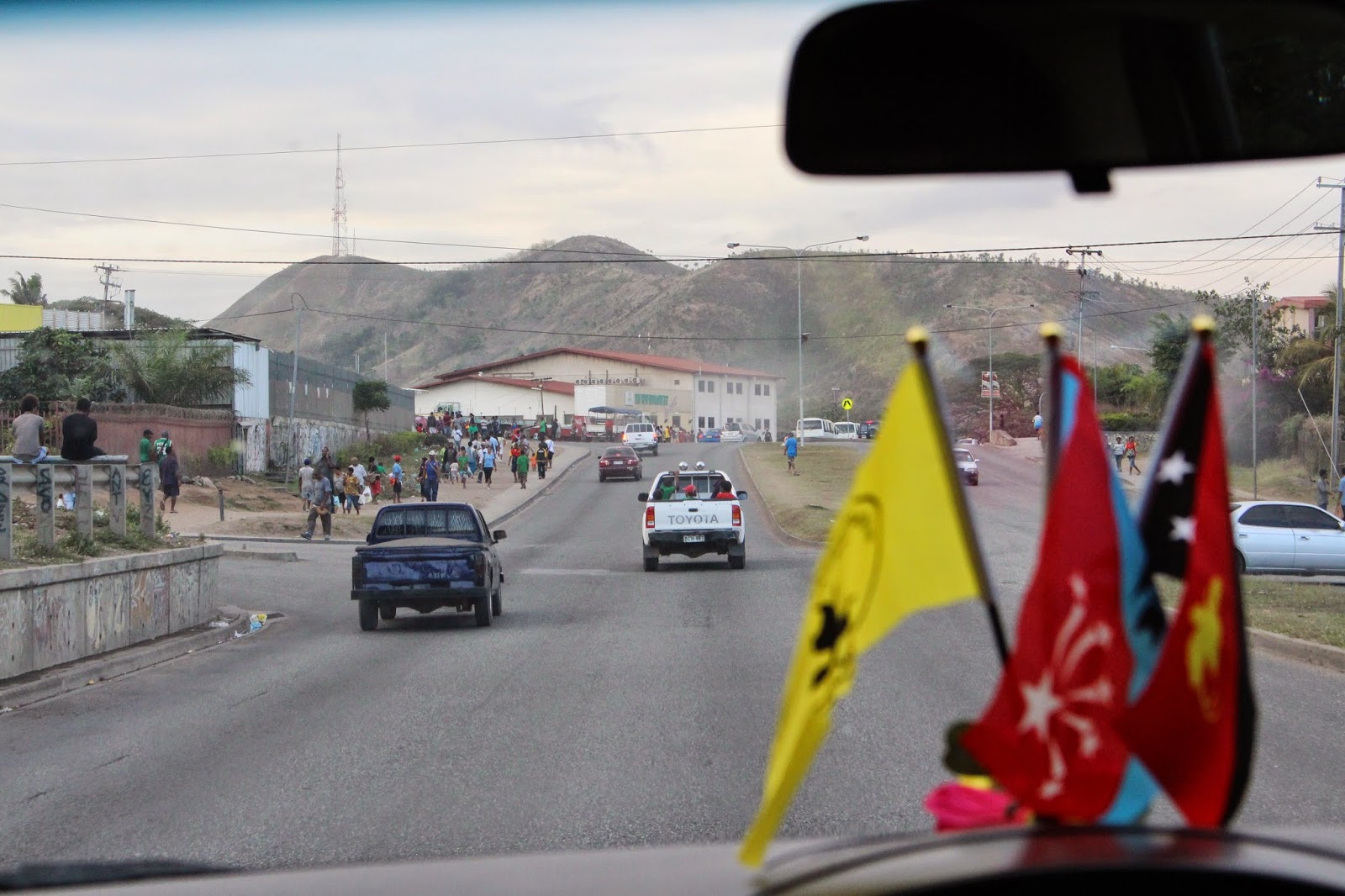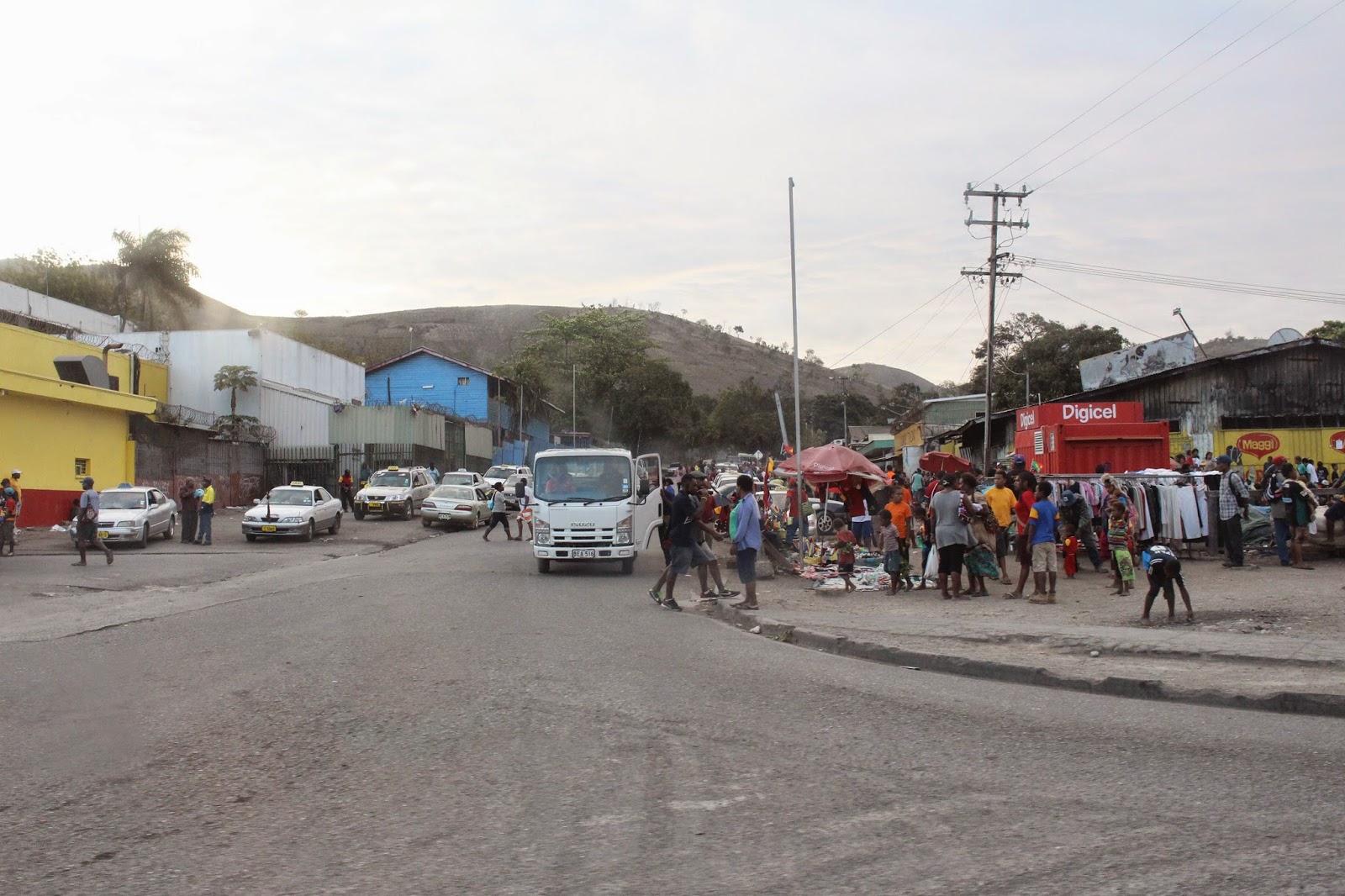PNG Journal Day 1 - The Journey Begins
05:35Day 1 - September 13, 2014
Port Moresby
Our PNG adventure begins! After a
hectic final night of turning the house inside out for miscellaneous supplies
(medical equipment, clothing/personal gear, glasses) and stuffing them into
bags like Christmas turkey, we’ve arrived at Port Moresby – the first stop in
our journey. It felt incredibly surreal to depart from overcast Sydney and find
ourselves a few hours later blinded by a vast curtain of blue – electric hues
blended at the horizon. Looking out from the tiny airplane window, I couldn’t
find the point where the ocean met the skies.
The
plan was to stay in Port Moresby for the night and travel onwards to Popondetta
the next morning. Apart from mum and Sue, it was our first time staying in the
capital of PNG, and apart from the stories of crime and instability, we didn’t
really know what to expect. Port Moresby is a city of high fences and razor
wire. Security is an issue here, and we travelled from door to door between
guarded complexes.
 |
| PNG Independence Day decorations |
From the window of the car, this
is what we saw – dry, sun-baked dirt by the side of the road; people walking
around, going about their daily lives at the marketplace. Vendors selling
trinkets, snacks and food produce. In the flash of a moment, I saw a glimpse of
two men fighting. A crowded, open air bus, with the faces of passengers visible
between wooden slates. Signs displaying the bright red and yellow logo of MAGGI
(yes, as in Maggi noodles) and the telecommunication company Digicel.
We drove past the squatter
settlements in the heart of the city as well. These were areas of high density
living, nested into little plots of land adjacent to the main road. In the
seconds as we drove past, I caught only glimpses of corrugated iron sheets,
lopsided houses, lines where laundry was hanging out to dry, smoke plumes and
short orange flames from burning garbage. Call it what you will, these are the
slums of Port Moresby, and it is confronting to see that people live in these
appalling conditions. We all know it – millions of people around the wall
living like this, or even worse. But it’s different when all of a sudden, it’s
there in front of you, the undeniable truth.
 |
| Corrogated iron, smoke fires, wire fences |
Later that night we were joined
by the Provincial Governor for Oro Province, Gary Juffa. Although the
conversation was mainly between Gary and mum, it was an incredibly fascinating
discussion to listen to. I came away with a very strong impression of a few key
features needed for real change for the people on a systems-based level.
Sustainability, allocation of resources
based on needs and not political interests, emphasis on partnership right from
the start, understanding cultural attitudes. For example, in PNG tribal custom
and laws are central to what happens in the community – whether it is the diet,
the behaviours of the people, whether the community is patriarchal or
matriarchal.
Here’s another thing that sounds
obvious but, sadly, is too rarely followed through – you have to care. The
outcome of any program can be extremely dependent on how much you care about
the people being serviced, and the people providing the services. Caring must
come from all levels – if there is poor management, an attitude of complacency
trickles all the way down and spreads its crippling roots wherever it goes.
Here’s an example Gary brought up: how can you go to work and be productive
when you live in a ghetto, and your children go to school in a ghetto? There is
a difference between going to work and actually doing your work. Care for the
carers by providing better housing, motivation goes up, and they feel loyal and
happy to work for an organisation that cares about them.
“The fundamental role of governments is to save lives.”
Here’s something you don’t hear a politician
saying every day, and the world would probably be a much better place if more
did. Once you strip things down to basics, it’s the absolute truth. Here’s an
example from Gary: Oro Province is a challenging terrain, and every year the
people are faced with deadly mudslides, floods, strong winds and king tides.
Putting together a disaster policy as a priority to cope with these incidents
has saved 150 lives in the Oro Province. When you put the focus on caring for
people, and build strong management and sustainable policy, things really do
work.
Here’s another thing put into
perspective: it is important to understand what is ‘normal’ here in PNG. Take
Gary’s example: where he grew up, there was a nearby river where children would
go to play. Sometimes the current would be very strong, and around 5 children
would drown every year. What could be considered an outrageous tragedy (which
it still is) in other parts of the world could be accepted as normal here, and
it is part of a culture which builds up a strong survival instinct even from a
young age. It is ingrained in the mindset of a resilient people.
All that there was left to do for
the rest of the evening was to rest and refuel for the big journey ahead.
Sorted out the last of some presentations, prepared as many glasses as we could
(wiping off the refractive error written on the lens and writing the details on
a plastic bag). Tomorrow, off to
Popondetta!
Carrie


















0 comments